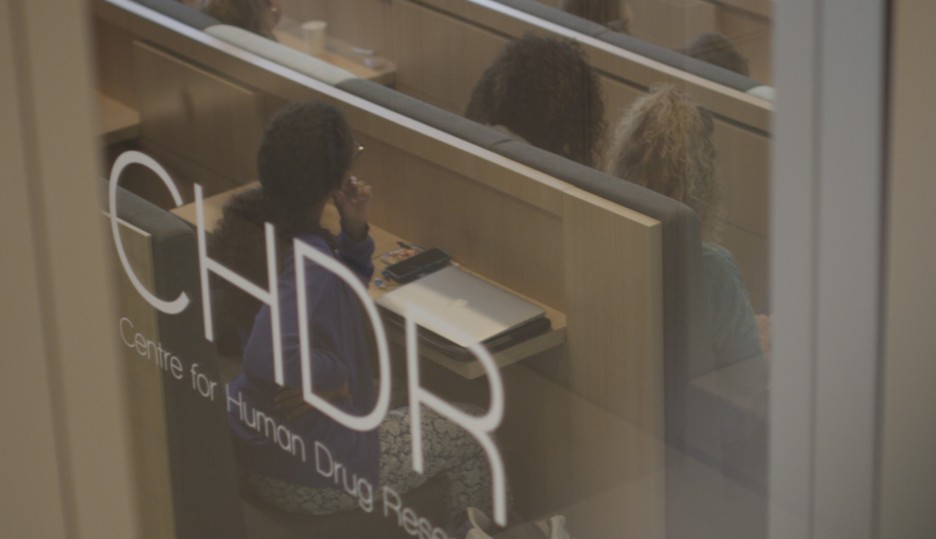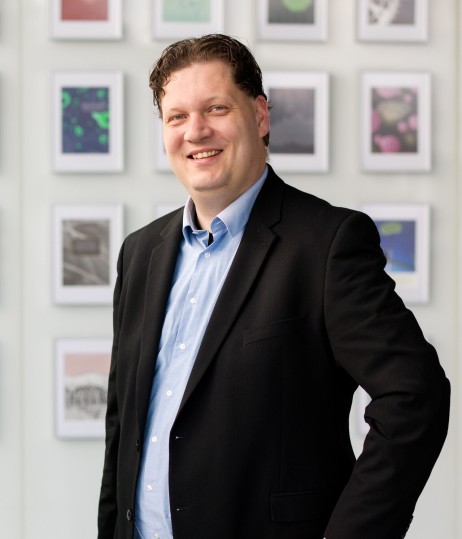At a glance
CHDR’s educational expertise lies in clinical drug development and pharmacotherapy. We offer educational programs for both academic students and postgraduate professionals. For instance, CHDR provides specialised postgraduate training on topics such as designing safe First-in-Human dosing regimens. Additionally, we teach clinical pharmacology and pharmacotherapy to medical, biomedical sciences, and bio-pharmaceutical sciences students, as well as healthcare professionals in training.
To support pharmacology education, CHDR developed TRC-p® (trc-p.nl), a free, illustration-based digital resource available as both a website and an app. TRC-p® uses a consistent set of visual symbols to clearly explain key concepts in pharmacology and drug mechanisms.
CHDR currently hosts multiple professorships and supervises more than 35 external PhD candidates affiliated with Leiden University, all conducting their research at CHDR.
We are also accredited to host the Clinical Pharmacology traineeship, a personalised in-house postgraduate program that typically runs alongside a four-year PhD trajectory. This program blends clinical research training with academic development and currently supports approximately 40 trainees.
To support the professional growth of young researchers and physicians, CHDR offers a structured career development pathway. To ensure the quality and continuity of our educational initiatives, we established the CHDR Academy.
A highly rewarding responsibility
Educating students and young professionals is a deeply rewarding responsibility — it not only inspires those being taught but also energises those doing the teaching. At CHDR, we view the education of future physicians and clinical scientists as an ethical imperative. While medicines have the power to save lives, errors in pharmacotherapy remain a leading cause of preventable complications and even mortality. By equipping tomorrow’s healthcare professionals with strong foundations in clinical pharmacology, we aim to reduce these risks and contribute to safer, more effective medical care.
Education also plays a critical role in advancing the fields of medicine and pharmacotherapy. By training the next generation of pharmacologists and pharmacists, we help ensure continued progress in these vital disciplines.
At CHDR, our team is continually seeking ways to enhance and innovate our educational efforts. We actively involve our interns in both research and teaching, fostering an environment where learning and contribution go hand in hand. This close interaction also allows us to identify promising talent for future roles within CHDR.
Recognising the importance of these efforts, we established the CHDR Academy. This dedicated department oversees the delivery of both internal training — including the Clinical Pharmacology traineeship, our PhD programme, and various in-house courses for medical, scientific, and operational staff — and external education for students and postgraduate professionals.
Teaching Resource Centre
One of CHDR’s key open-access contributions to pharmacology education is TRC-P (Teaching Resource Centre – Pharmacology; https://trc-p.nl), available both as a website and a mobile app via the iOS and Google Play stores. TRC-P offers immediate access to a user-friendly, comprehensive pharmacology e-database, developed from years of experience in teaching pharmacology to medical students. Designed for students and biomedical professionals, it also functions as a free library of high-quality teaching materials.
Since its launch, the TRC-P app has been downloaded over 200,000 times by users worldwide. Its most recent update includes new features such as downloadable and embeddable illustrations, self-assessment questions, and clickable stepwise animations to support the learning of complex drug mechanisms.
What distinguishes TRC-P is its consistent use of visual iconography to explain pharmacological concepts and drug actions. Unlike traditional, text-heavy resources, TRC-P is primarily illustration-based, with text playing a supporting role. Once users are familiar with its structured visual language, they can more easily understand new and complex drug mechanisms.
To maintain TRC-P’s quality and relevance, an editorial board oversees its content and ensures regular updates, keeping it a dynamic and engaging educational tool.


